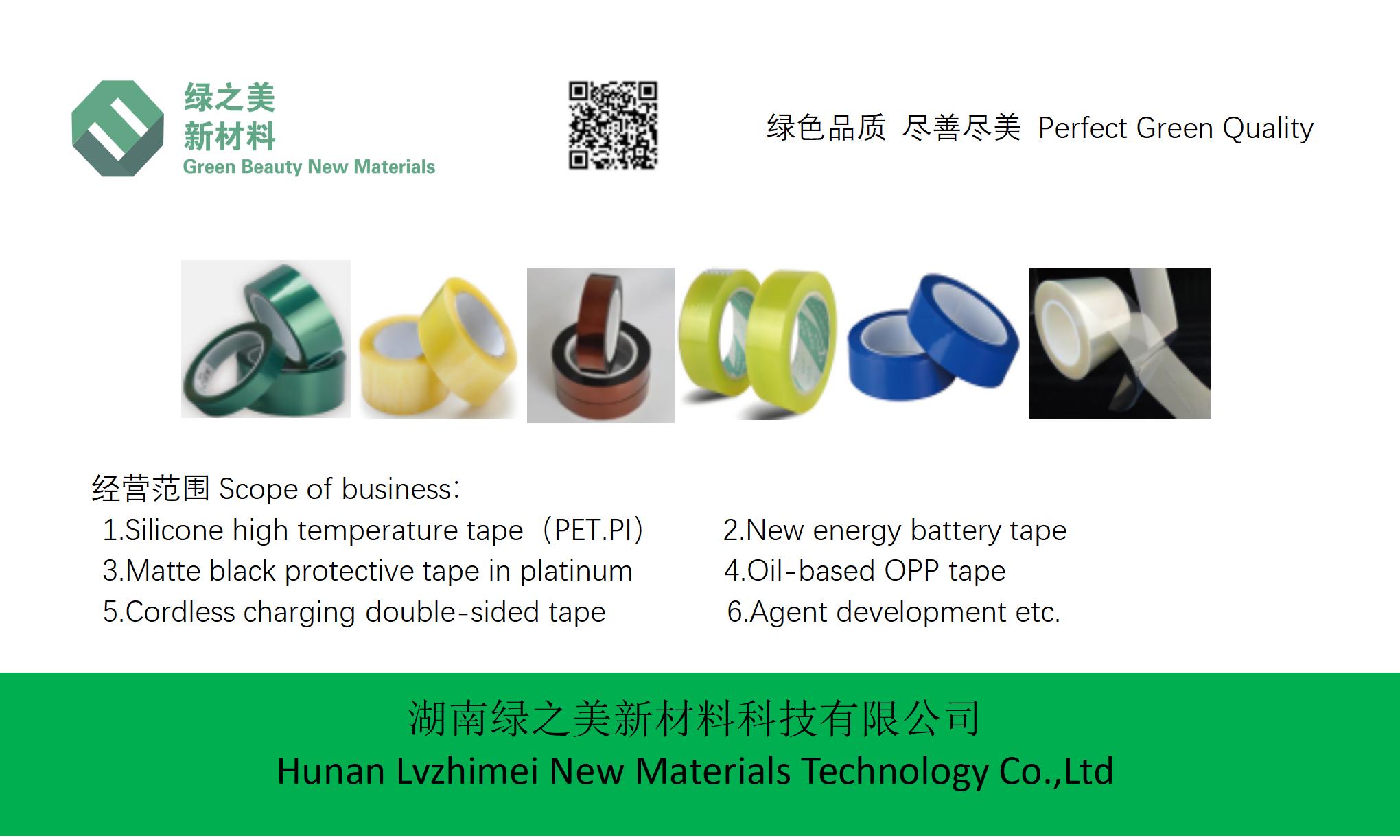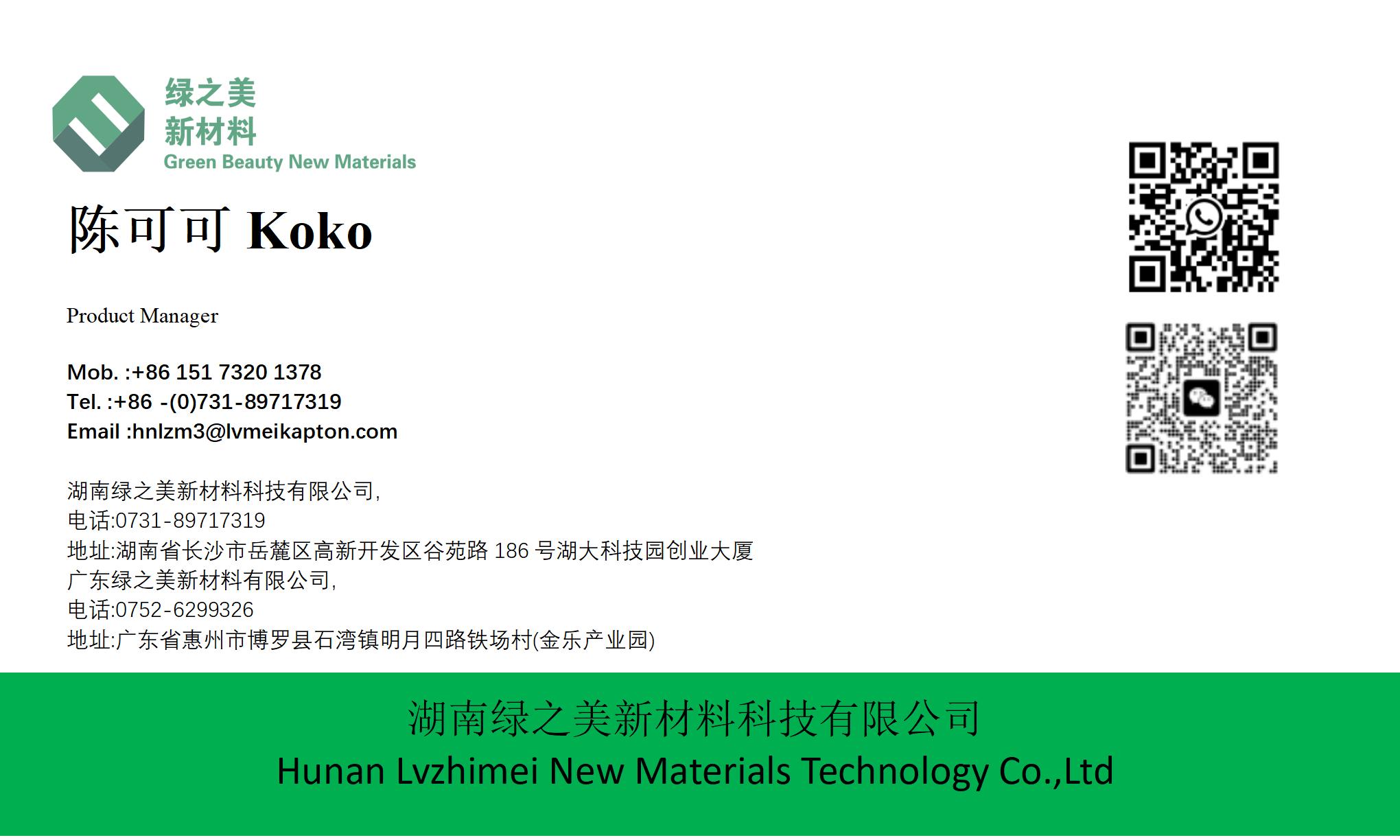hnlzm@lvmeikapton.com
+86 13787123465


Hunan Lvzhimei New Material Technology Co., Ltd.


NameDescriptionContent
When to Use PI Material High Temperature Resistant 300 Tape in Electric Motor Insulation? |https://www.lvmeikapton.com/
Source:
|
Author:Koko Chan
|
Published time: 2025-06-26
|
6 Views
|
Share:
Focused on motor and transformer insulation, this piece examines tape durability under thermal cycling.
When to Use PI Material High Temperature Resistant 300 Tape in Electric Motor Insulation?
Introduction
In the realm of electric motor insulation, the selection of appropriate materials is paramount to ensuring the longevity, efficiency, and safety of the motor. Polyimide (PI) material high temperature resistant 300 tape stands out as a crucial component, especially for H-class insulation applications. This article delves into the significance of PI tape, exploring its properties, benefits, and practical applications in motor insulation, supported by relevant data and case studies.
Understanding PI Material High Temperature Resistant 300 Tape
PI tape, specifically designed to withstand temperatures up to 300°C, is a specialized insulating material that offers exceptional thermal stability and mechanical strength. This tape is characterized by its high tensile strength, measuring at least 42 N/25mm, which ensures secure binding of motor coils, thereby reducing wear caused by vibration. The tape's resistance to thermal cycling makes it ideal for environments where temperature fluctuations are common, maintaining its integrity and performance over extended periods.
Key Properties of PI Tape
●
High Temperature Resistance: Capable of operating consistently in temperatures up to 300°C, PI tape ensures reliable insulation in high-temperature applications.
●
Mechanical Strength: With a tensile strength of ≥42 N/25mm, it provides robust support to motor components, minimizing the risk of mechanical failure.
●
Thermal Cycling Durability: PI tape withstands repeated heating and cooling cycles without significant degradation, ensuring long-term performance.
●
Radiation Resistance:特别适合核应用,提供必要的辐射防护。
●
Compliance with International Safety Standards: PI tape meets stringent international safety and quality standards, ensuring its suitability for a wide range of applications.
Applications in Electric Motor Insulation
The application of PI material high temperature resistant 300 tape in electric motor insulation is widespread, primarily due to its exceptional properties that enhance motor performance and durability. This section explores the specific uses and benefits of PI tape in motor insulation.
Enhancing Motor Longevity
One of the most significant advantages of using PI tape in motor insulation is its ability to extend the lifespan of the motor. Case studies have demonstrated that motors insulated with PI tape experience a 30% increase in operational life compared to those using conventional insulating materials. This extended lifespan is attributed to the tape's superior resistance to thermal degradation and mechanical stress, reducing the frequency of maintenance and replacement.
Improving Thermal Efficiency
PI tape's high-temperature resistance allows motors to operate efficiently under extreme conditions. By maintaining its insulating properties at elevated temperatures, PI tape helps prevent thermal breakdown, ensuring consistent motor performance. This is particularly important in applications where motors are subjected to continuous high loads and temperatures, such as in industrial machinery and aerospace systems.
Ensuring Safety and Compliance
In addition to its performance benefits, PI tape plays a critical role in ensuring the safety of electric motors. Its compliance with international safety standards, including those set by organizations such as the International Electrotechnical Commission (IEC), ensures that motors meet the necessary safety requirements. This is especially important in applications where motor failure could lead to significant safety hazards, such as in nuclear power plants and medical equipment.
Case Studies: Real-World Applications of PI Tape
To further illustrate the effectiveness of PI material high temperature resistant 300 tape, let's examine a few real-world case studies where this tape has been successfully implemented.
Case Study 1: Industrial Manufacturing
In a large industrial manufacturing facility, motors were experiencing frequent failures due to the high temperatures generated during continuous operation. By switching to PI tape for insulation, the facility reported a 35% reduction in motor failures and a 28% increase in overall production efficiency. The tape's ability to withstand extreme temperatures and mechanical stress contributed significantly to the improved performance and reliability of the motors.
Case Study 2: Aerospace Applications
In the aerospace industry, where reliability and performance are of utmost importance, PI tape has been widely adopted for motor insulation. A leading aerospace company reported a 40% increase in the operational lifespan of their critical motor systems after incorporating PI tape. The tape's resistance to thermal cycling and radiation made it an ideal choice for the demanding conditions encountered in aerospace applications.
Comparison with Other Insulating Materials
To better understand the advantages of PI tape, it is helpful to compare it with other commonly used insulating materials. The following table provides a comparison of key properties between PI tape and two other popular insulating materials.
Property | PI Tape | Polyester Tape | Nomex Tape |
Temperature Resistance | Up to 300°C | Up to 155°C | Up to 220°C |
Tensile Strength | ≥42 N/25mm | ≈20 N/25mm | ≈30 N/25mm |
Thermal Cycling Durability | Excellent | Good | Good |
Radiation Resistance | Excellent | Poor | Moderate |
Compliance with Standards | IEC, UL | UL | IEC, UL |
As evident from the table, PI tape outperforms other materials in terms of temperature resistance, tensile strength, and radiation resistance, making it the preferred choice for high-temperature and high-performance applications.
Implementation Considerations
When incorporating PI material high temperature resistant 300 tape into electric motor insulation, several factors should be considered to ensure optimal performance and effectiveness.
Selection of Appropriate Tape Specifications
The specific requirements of the motor application, including operating temperature, mechanical stress, and environmental conditions, should guide the selection of PI tape specifications. Ensuring that the tape meets these requirements is essential for achieving the desired performance outcomes.
Proper Application Techniques
The effectiveness of PI tape depends not only on its inherent properties but also on the techniques used for its application. Proper training and adherence to best practices in tape application are crucial to ensuring secure and reliable insulation. Techniques such as precise layering and tension control play a significant role in maximizing the tape's performance.
Regular Maintenance and Inspection
While PI tape offers exceptional durability, regular maintenance and inspection are necessary to identify and address any potential issues before they lead to motor failure. Implementing a comprehensive maintenance schedule can help extend the lifespan of the tape and the motor it insulates.
Conclusion
PI material high temperature resistant 300 tape is a vital component in the field of electric motor insulation, offering unparalleled thermal stability, mechanical strength, and durability. Its applications in H-class insulation, particularly in environments subjected to high temperatures and thermal cycling, highlight its significance in enhancing motor performance and longevity. By understanding the properties and benefits of PI tape, and by implementing it correctly, engineers and technicians can ensure the reliable and efficient operation of electric motors across a wide range of industries. As demonstrated by real-world case studies and comparative analysis, PI tape stands out as the preferred choice for high-performance motor insulation, setting a new standard in the field.
References
1.
LVMEIKAPTON Insulating Electrical Tape Data Sheet. Available at: https://www.lvmeikapton.com/
2.
International Electrotechnical Commission (IEC) Standards for Electrical Insulation.
3.
Underwriters Laboratories (UL) Safety Standards for Insulating Materials.
4.
Case Studies on the Application of PI Tape in Industrial and Aerospace Motors. Various Industry Reports.
Appendices
●
Appendix A: Technical Specifications of PI Tape
●
Appendix B: Detailed Comparison of Insulating Materials
●
Appendix C: Best Practices for PI Tape Application
Note: The content provided in this article is for informational purposes only and should not be considered as professional advice. Always consult with qualified professionals before making any decisions regarding the selection and application of insulating materials.



Hunan Lvzhimei New Material Technology Co., Ltd.
Quick Links
Product Categories
© 2024 Hunan Lvzhimei New Material Technology Co., Ltd.All Rights Reserved. Designed by Erge
0731 - 89717319
hnlzm@lvmeikapton.com
+86 13787123465
Room 502, Chuangye Building, No186, Guyuan Road, High-Tech District, Changsha, Hunan, China
CONTACT



